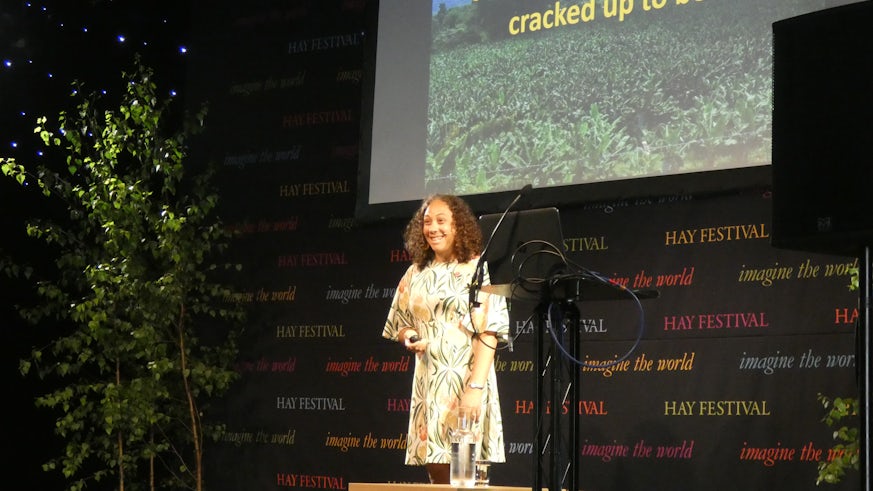Food certifications
7 June 2017

Cardiff University expert discussed food certification as part of the Cardiff Series at this year’s 30th anniversary Hay Festival.
Angelina Sanderson-Bellamy, Research Fellow at the Sustainable Places Research Institute spoke at an interactive event designed to help people understand the array of food certificates found on our food.
Angelina's areas of expertise encompass food production systems and land use and land cover changes, using a social-ecological perspective. She investigates the social drivers, particularly governance and support structures, of environmental change and the impact of land management on the delivery of ecosystem services.
Speaking about the event at the Hay Festival Angelina said: “We are all familiar with an array of certificates found on our food, such as Rainforest Alliance, Marine Stewardship Council, Fairtrade and Organic. This certification is meant to reassure us that food is produced in a more ecologically friendly way or improves animal welfare. But what do we know about the impact of certification and how do consumer choices drive and influence both intended and unintended consequences for local communities?
“My session took an interactive approach of asking the audience to state their opinions through seating arrangements and card prompts in the initial and midway points, with discussion at the conclusion as a barometer of how the audience perceives food certification schemes. I was really pleased to see so many people come long; they really enjoyed having the opportunity to express themselves throughout the session and based on their feedback afterwards, it seemed to be an eye-opening presentation for many of them. It was a great audience and I think many of them walked away with a lot of food for thought about the impact of how our food is produced and the role that consumers can play.” She continued.
Angelina initiated her first fieldwork project in Costa Rica in 1998, and since then she has been committed to research at the intersection of society and the environment. Over the past 19 years, this research has ranged from conducting interviews with more than 400 farmers, agricultural workers and other land users to sampling avian, insect, water and soil specimens. During this time, Angelina developed an extensive network of contacts in Costa Rica and a deep and nuanced understanding of its culture, which enables her to conduct place-based research with a rich set of data addressing both socio-economic, biodiversity and spatial variables in the communities in which she works.